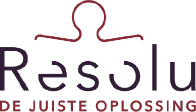If an employee or former employee is on the Sickness Benefits Act, it does not mean that there cannot be opportunities for gainful employment. Ancillary income regularly occurs in the Sickness Law. But what exactly is this like for you as an employer?
What is ancillary income?
When a person has ancillary income in addition to his or her income from the main job, these are called ancillary income. It does not matter whether you perform the ancillary work frequently or occasionally, receive compensation for it or not, or whether you spend much or little time on it.
Reporting ancillary income
As soon as an (ex-)employee has ancillary income, the (ex-)employee is obliged to report this to the sickness law case manager. This can be done through a pay slip or the taxable profit if (ex-)employee has ZZP income.
This income is partially (70%) offset against the sickness benefit. Because it is not settled for 100%, this motivates the (former) employee to go to work, because the total income of the (former) employee will increase with the ancillary income. As an (ex-)employer, you will have less of a claim burden because the Sickness Law benefit will be lower in connection with the ancillary income.
Ancillary income that does not count
There are also income that does not affect your Sickness Benefits. Child support, alimony, and an expense allowance for volunteer work are some examples.
Do you have a (former) employee under the Sickness Benefits Act and do you bear the excess for this? Then Resolu will gladly support you with Sickness Benefits Act guidance. Are you not yet self-insurer for the Sickness Benefits Act and/or WGA? Then check our website to see whether being self-insured is something for you.




